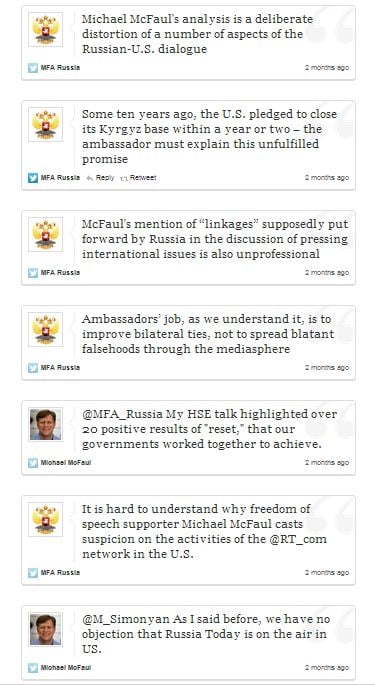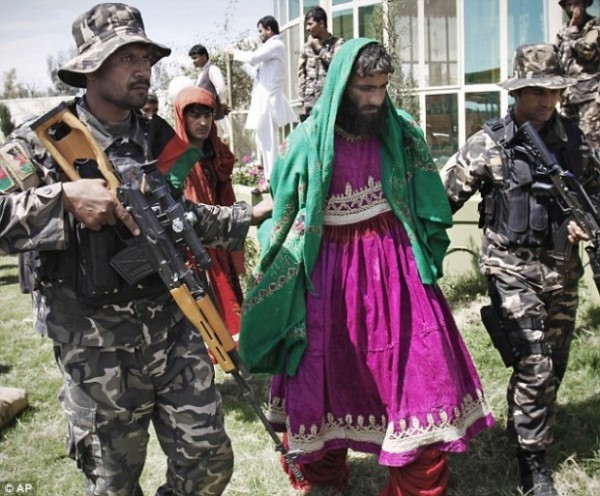The Arab Spring awoke people to the power of social media in a political context. Of course, you would have to be living under a rock to think it was the first time Twitter was ever used to coordinate mass protests — it was hugely prominent in Iran during the 2009 protests, Moldova, and the Greek riots in 2008 (AKA “griots”). It provides an expansive forum for activists, politicians, and layfolk alike, which, while useful, can spur controversy as well.
So what are some of the best political Twitter feuds in the world of international relations? We’ll list three big ones for now. Feel free to add your own in the comments section below.
On June 6, 2012, Paul Krugman cranked out a 70-word blog post that changed the history of a very, very influential country whose economy is…
No bow ties were harmed in the production of this graph. Source: the World Bank
…1% of the size of the U.S. economy.
Estonia, the poster child of austerity and the home of a leader who needs Brooks Brothers’ bow ties more than I need coffee, does not like to be told that austerity isn’t the solution. In fact, Toomas Hendrik Ilves loathes Krugman’s 70-word blog post so much (crickey mate, it wasn’t even a column) that he cranked out several bitter Tweets slamming the Nobel-lauret and cat lover with fury of a thousand swallows, Estonia’s national bird.
We suspect that Krugman’s thought process probably went as follows: 1) can I make a pun out of this? 2) Princeton! 3) how I can incorporate this into my next post? He managed to do the latter successfully, proudly speaking positively of Iceland’s recovery while, to Ilves’ chagrin, taking a pot shot at Estonia yet again. To be fair, who could resist with those Tweets?
Yet again, here’s a story of an Ivy-League professor — or former professor — causing a ruckus in the Twittersphere. Michael McFaul, the second ambassador to Russia in 30 years who has not been a career diplomat, assumed office in January 12, 2012 and has been butting heads with the Russians both in person and on social media for some time now. He’s new to Twitter as well, so it’s perhaps not entirely surprising that he’s had a few fumbles.
To be fair, McFaul’s ambassadorship in Russia has not been easy. As he pointed out, anti-Americanism is on the rise in Russia and is affecting his ability to do his job. Sure, he’s whipped out the “I’m not a professional diplomat” card — particularly after he misspoke while being harassed by an NTV journalist in the winter — but life was clearly far from easy when McFaul “discovered” some terrible facts about himself:
He was imposing odious American holidays, like Valentine’s Day and Halloween, on the Russian people. He personally whisked Russian opposition politician Alexey Navalny out of the country to Yale on a fellowship. He was inviting opposition figures to the U.S. Embassy “to get instructions.” And he was a pedophile. Or so his online tormentors claimed.
On top of that, there’s the all-seeing eye of the Ministry of Foreign Affairs’ Twitter, which seems to be manned by either a really bitter intern or a very whiny Putin. Not to mention that it updates constantly, more so than seems particularly healthy. Following his remarks at the Higher School of Economics, McFaul was bombarded by Tweets from the MFA. The following “dialogue” ensues:

Immediately Russia Today reports that the U.S. is now banning its broadcasts. That was a joke, by the way.
Whoever was dealing with the Twitter that day — drunk hobo, a minister who couldn’t get a visa to the U.S., a bitter intern, or, better yet, Putin himself — seemed to get a little too into it; after all, they fired off four tweets before McFaul even gets the chance to respond. It doesn’t matter if his Blackberry was slow, if he just wanted to cool off before typing because in either case or if he was — gasp — busy with something more important, the impassioned typist breaks some of the core rules of internet dialogue: Don’t argue with a wall.
The MFA actually continues:
Clearly forgetting that you can actually watch Russia Today on various mediums, the MFA finishes off and retreats back into its cavernous abode. McFaul continues with life, probably after sighing heavily.
Twitter: An unexpected den of counterinsurgency activity.
An alleged Taliban Twitter — we’ll touch on this part later — representative by the name of Abdulqahar Balk (@ABalkhi) moved its 20-hour assault on a diplomatic enclave in Kabul to…Twitter?
Now, usually the arguments were over statistics and how certain events were reported. @ABalkhi was often inflammatory, but what did we expect from what was allegedly the Taliban interacting with ISAF? If they were exquisitely polite, something would seem a bit off.
But then @ABalkhi cranks out the big guns. No, we’re not talking about anti-tank weapons. @ABalkhi has something even better, even more insidious, and probably outlawed by the Geneva Convention: the words “dumb dumb.”

You, sir, are the dumb dumb for thinking that disguise would actually be effective. (AP Photo/Rahmat Gul)
Debate ensues over the claim that NATO has Afghani mercenaries in its payroll. @ABalkhi, who obviously is going to push the claim that NATO does, in fact, have these mercenaries, responds to @ISAFmedia by eloquently stating that “your officials admitted to it dumb dumb.” Some wise man at ISAF responds appropriately with: “Dumb dumb? How the dialogue elevates. Look: Nobody takes you seriously. Everything you type is wrong. Just. Stop.” @ABalkhi responds: “That’s why they picked you for this job. If I wasnt here, you wouldnt have a job.”
The question is, what does NATO have to gain from these snippy messages? If they don’t take him seriously, then ignore him; @ABalkhi is the geopolitical equivalent of that stupid kid who sat behind you in the classroom and poked you in the middle of class — all for no good reason. Obviously some aspect of it ties into information warfare, but the disinformation aspect of it seems overshadowed by snark. As for the Taliban, the fact that their taking shots at NATO through a social media site isn’t terribly surprising provided their affinity for web-based propaganda, including their site “Islamic Emirate of Afghanistan,” a website that posts messages, battlefield reports and propaganda for the Taliban.
Most importantly, there’s nothing to suggest that this account is even legitimate. A quick Google search of the name “Abdulqahar Balkhi” comes up with news about the Twitter wars, @ABalkhi’s Twitter site and that’s about it. Unlike al Shabaab’s Twitter, Abdulqahar Balkhi’s page doesn’t post anything that isn’t already on the Islamic Emirate of Afghanistan website. Maybe @ABalkhi is a sympathizer, a troll, someone with a lot of free time and a twisted sense of humor, or a legitimate Taliban representative, but there’s no way of knowing. Short of finding the poster himself, it’s nearly impossible to build a rock-solid case that what the ISAF is doing is actually a good use of time and, thus, money.
But, hey, on the bright side, whoever is tweeting for ISAF totally used the phrase “pro tip” in a sarcastic post to the Taliban.